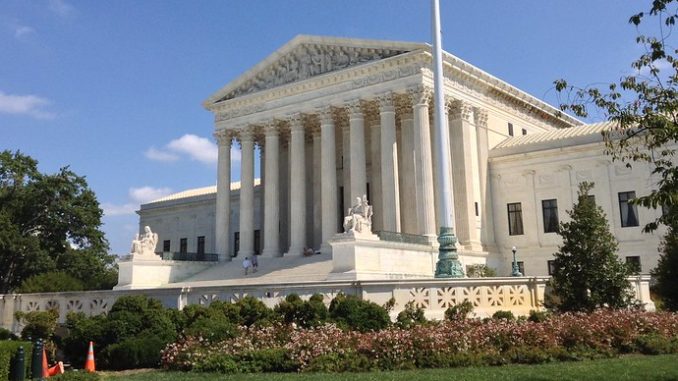
Supreme Court Decision.
To assess your knowledge and skills in government and politics answer these sample multiple-choice questions based on the provided excerpt from the Supreme Court Case United States v. Lopez (1995). Read the excerpt from the ruling and answer the multiple questions below the excerpt. The correct answers will appear below the questions.
We do not doubt that Congress has authority under the Commerce Clause to regulate numerous commercial activities that substantially affect interstate commerce and also affect the educational process. That authority, though broad, does not include the authority to regulate each and every aspect of local school.” Majority Opinion, Chief Justice Rehnquist, United States v. Alfonso Lopez (1995)
1. In writing our “dual system of government” Chief Justice Rehnquist is referring to which constitutional principle?
A. Checks and balances
B. Bicameralism
C. Federalism
D. Separation of powers
2. What is the significance of the decision United States v. Alfonso Lopez (1995)?
A. The Supreme Court expanded the power of the federal government in the successful invocation of the Commerce Clause.
B. State governments could challenge federal government behavior using the Commerce Clause
C. Second Amendment protections were reaffirmed by the Supreme Court.
D. The Supreme Court limited the power of the federal government under the Commerce Clause.
3. Which of the following is most similar to the ruling in United States v. Alfonso Lopez?
A. Gibbons v. Ogden (1824)
B. Heart of Atlanta Motel v. United States (1964)
C. United States. v. Morrison (2000)
D. Wickard v. Filburn (1942)
And the answers are . . . C, D, and C
What unique vocabulary terms did you see that you were not familiar with? How might knowing these terms help you answer the question?